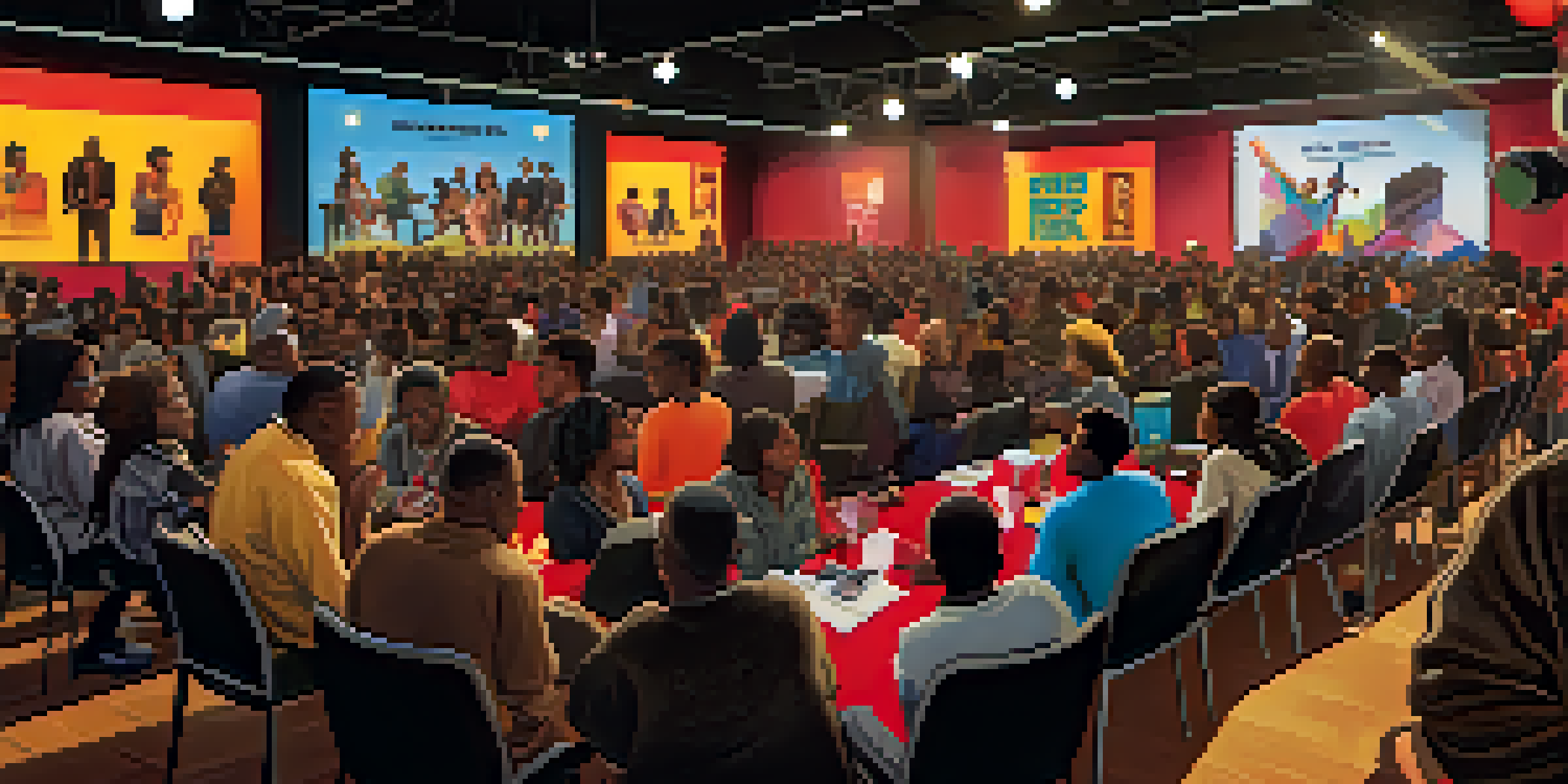The Intersection of Film and Black Lives Matter Movement

The Role of Film in Social Movements Throughout History
Film has long served as a mirror reflecting society's issues, capturing the zeitgeist of the times. From the civil rights movement to the anti-war protests, cinema has documented and influenced public opinion. It provides a platform for marginalized voices, allowing their stories to resonate with broader audiences. This historical context sets the stage for understanding how film intersects with modern movements like Black Lives Matter.
Documentaries: Bringing Truth to Light
Documentaries have the power to educate and evoke empathy by showcasing real-life events and stories. Films like '13th' and 'I Am Not Your Negro' dive deep into systemic racism, sparking conversations that might otherwise remain uncomfortable. By presenting factual evidence alongside personal narratives, documentaries help viewers connect emotionally with the struggles of the Black community. This emotional engagement is crucial for fostering understanding and driving change.
Film as a Voice for Change
Throughout history, film has reflected societal issues and provided a platform for marginalized voices, influencing public opinion and modern movements like Black Lives Matter.
Mainstream Cinema's Role in Shaping Perceptions
While documentaries provide raw truths, mainstream cinema can also shape cultural narratives in powerful ways. Films such as 'Black Panther' and 'Selma' not only entertain but also educate audiences about Black history and contemporary issues. They challenge stereotypes and present complex characters, allowing viewers to see the humanity behind the headlines. This shift in representation is essential for dismantling the biases that fuel discrimination.
Social Media and Film: A New Era of Activism
The rise of social media has transformed how films are shared and discussed, amplifying their impact. Platforms like Twitter and Instagram allow filmmakers to engage with audiences directly, creating a dialogue around their work. Hashtags like #BlackLivesMatter gain traction through clips and trailers, drawing viewers to films that address social justice. This digital shareability is vital in mobilizing support and raising awareness for the movement.
Documentaries Spark Empathy
Documentaries such as '13th' and 'I Am Not Your Negro' evoke empathy and educate audiences on systemic racism, driving essential conversations around social justice.
Film Festivals as Platforms for Black Voices
Film festivals have become crucial arenas for showcasing Black talent and stories. Events like the African American Film Festival and the Pan African Film Festival celebrate diverse narratives while fostering community dialogue. They provide emerging filmmakers a stage to share their perspectives, paving the way for future storytellers. This focus on inclusivity helps to ensure that Black voices are not only heard but also celebrated.
The Impact of Streaming Services on Representation
The rise of streaming services has revolutionized how audiences access films and series, leading to more diverse storytelling. Platforms like Netflix and Hulu offer space for Black creators to present their work without the constraints of traditional Hollywood. This expanded access means that stories from the Black community can reach wider audiences, breaking down barriers. The democratization of content is crucial in promoting representation and inclusivity.
Streaming Expands Diverse Narratives
The rise of streaming services has democratized content, allowing Black creators to share their stories widely and promoting greater representation in storytelling.
The Importance of Authentic Storytelling
Authenticity in storytelling is paramount when addressing issues related to the Black Lives Matter movement. Films that are created by Black filmmakers or feature Black narratives tend to resonate more deeply with audiences. Authentic representations challenge the existing stereotypes and provide a richer, more nuanced view of the Black experience. This authenticity fosters a greater understanding and connection between audiences and the subject matter.
Looking Ahead: The Future of Film and Activism
As we look to the future, the intersection of film and activism is likely to grow stronger. New technologies and platforms will continue to evolve, providing fresh opportunities for storytelling. Additionally, as societal awareness of racial issues increases, filmmakers will feel compelled to address these topics more directly. This ongoing dialogue between film and the Black Lives Matter movement is vital in shaping perceptions and inspiring action.